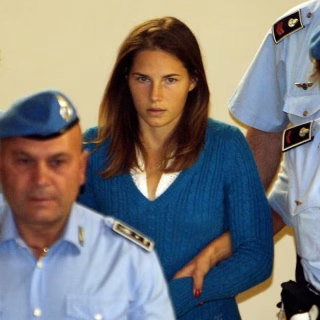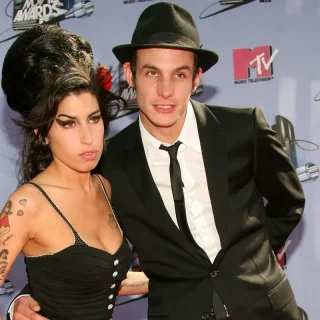|
Getting your Trinity Audio player ready...
|
The black panther party and its co-founder Huey P Newton drew both agonists and antagonists as they fought for social change and protection for Black Americans.
A Tv series known as The Big Cigar provides an account of the activist’s flight to Cuba in 1974 while facing murder and assault charges in the United States. The Big Cigar is a six episode series that stars André Holland as Newton. It specifically points out the role of Bert Schneider in the scheme.
He financed a fake film production to help Newton temporarily evade authorities and continue his quest for social revolution.
The story is however more complex than that.
Newton co-founded the Black Panther Party for Self-Defense with Bobby Seale in Oakland, California, in 1966. He ran the party as its first leader and crafted its ten-point manifesto with Seale.
Newton was known for being an advocate of the right of self-defense and used his position within the Panther Party to welcome women as well. The party also took an active role in the community, establishing a school for Black children in Oakland.
The group contained a number of outspoken personalities, including Newton, Seale, and Eldridge Cleaver.
Newton would frequent pool halls, campuses and other locations in the black community where people gathered in order to organize and recruit for the Panthers. While recruiting, Newton sought to educate those around him about the legality of self-defense. One of the reasons, he argued, why Black people continued to be persecuted was their lack of knowledge of the social institutions that could be made to work in their favor.
Newton made several headlines in his lifetime.
Newton had been convicted of assault with a deadly weapon. He repeatedly stabbed another man, Odell Lee, with a steak knife in mid-1964. He served six months in prison.
In 1967, he was arrested after allegedly killing Oakland police officer John Frey during a traffic stop. He was convicted of voluntary manslaughter in 1968 and sentenced to two to 15 years in prison, though the conviction was overturned two years later.
By the 1970s, Newton had become addicted to Cocaine and increasingly violent.
Then in August 1974, Newton was charged in the murder of a 17-year-old sex worker named Kathleen Smith.
He was simultaneously alleged of assaulting Preston Callins, a tailor, in a separate incident. He was arrested for buffaloing him over the price of a suit.
However, during the trial for assaulting the tailor, the tailor, who changed his testimony several times, eventually told the jury that he did not know who assaulted him. Newton was acquitted of the assault in September 1978, but convicted of illegal firearms possession and served 9 months in prison in 1987.
However, concerning the alleged charges of killing Kathleen smith,Newton knew he had to get out of the U.S. He sought refuge in the home of Schneider’s friend Steve Blauner. Referring to themselves as the Beverly Hills 7, Schneider and a group of his Hollywood chums plotted to get Newton to Cuba where he could seek political asylum.
As Bearman wrote in Playboy:
“Bert and Steve and a trusted core of their Hollywood cohorts would throw together an underground railroad and smuggle Huey to Cuba. It would turn into a big production but with real-life stakes. Like their films, this project had a title. Bert called it ‘The Big Cigar.’”
Newton in Cuba
He stayed in Cuba for almost three years. After financing Newton’s escape, Schneider continued to offer support from afar. The producer even invited some of his celebrity friends, including actors Candice Bergen and Jack Nicholson, to visit Newton on the island, according to The New York Times.
One year after his arrival, Newton intimated his experience abroad during an interview with AFRO News. “The Cuban Revolutionary Government has been generous and very considerate to me and my family,” Newton said, adding he hadn’t experienced any racism from the Cubans.
He said the Cuban government had asked him to work as a literature teacher at the nearby university, but he declined the offer but chose to repair cement trucks at mechanical factories in the countryside. He described his neighbors as “being like part of the family”.
Newton Returns
In June 1977, he eventually had to return and face the charges against him.
He cited the Watergate Scandal and public revelations of abuses by the CIA and FBI as evidence he could prove his innocence. “A change of administration does not mean an end to the system of exploitation which I oppose,” Newton said, referring to the start of Jimmy Carter’s presidency earlier that year. “But there is now a more congenial atmosphere for the kind of court battle that we are going to fight. After all these revelations of recent years, the people are prepared to believe the kind of conspiracies that the government has inflicted on us.”
Newton officially pleaded not guilty to killing Smith and assaulting Callins on November 22, 1977.
As for the murder charge, a jury voted 10 to 2 for acquittal, resulting in a mistrial on March 24, 1979. “I’ve been vindicated by the community,” Newton remarked, though he faced a retrial later that year. Again, the jury was stuck—this time at an 11 to 1 vote for acquittal—in another mistrial.
Fate of the Black Panther Party.
Before Newton escaped to Cuba, he appointed Elaine Brown as the new leader.
Elaine installed women in key positions. This decision causes discord among the male members.
When Newton returned, there was a clash of power between him and Elaine. They argued over the party’s direction. Brown’s last straw came when Newton failed to condemn the assault of Regina Davis, a Black Panther school administrator, for a minor offense. “The beating of Regina would be taken as a clear signal that the words ‘Panther’ and ‘comrade’ had taken on gender connotations,” Brown wrote, “denoting an inferiority in the female half of us.” She left the party.
In 1982, he was accused of embezzling $600,000 of state aid to the Panther-founded Oakland Community School. The charges were dropped six years later in March 1989, after Newton pleaded no contest to a single allegation of cashing a $15,000 state check for personal use. He was sentenced to six months in jail and 18 months probation.
Despite escaping the legal problems that caused him to escape to Cuba, Newton couldn’t outrun his controversial standing in society. He was shot and killed on August 22, 1989, by a member of the Black Guerilla Family street gang, leaving a substantial but complex legacy that still fascinates today.




